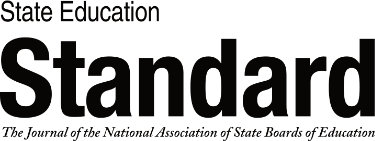The last two years disrupted public education systems, but they also highlighted opportunities. Schools and districts can apply the nimbleness they demonstrated during the pandemic to efforts to reconnect and reengage their students. In this moment, state boards of education are in the perfect position to guide schools and districts, not just to a return to normal, but to a system that invites back students’ whole selves through inclusive, culturally relevant practices.
At a time when school systems have reported sharp declines in student enrollment, it is important to recognize that when students are disconnected from school they are disconnected from multiple facets of development. Culturally responsive practice makes use of culture as a basis for engaging and motivating students, and it fosters proactive classroom management and positive student behavior. Such practices also lead to improved academic performance, attendance, credits earned, retention rates, and positive self-identity.
Creating State Education Systems That Value Student Cultures
Also In this Issue
Five Trends Shaping the Teaching Force
By Richard M. Ingersoll, Elizabeth Merrill, Daniel Stuckey, Gregory Collins and Brandon HarrisonState policymakers looking to increase recruitment and retention should keep an eye on these long-term trends.
The Uneven Landscape of Teacher Preparation
By Leslie T. FenwickState statutes impede students' equitable access to profession-ready teachers.
A Data-Driven Approach to Staffing Schools
By Hannah Putman and Heather PeskeLowering teacher standards may fail to solve actual pipeline problems and can create new ones.
Licensure Tests as Barriers to the Profession
By Victoria Van CleefStates should explore better means of assessing teachers' classroom readiness.
Teacher Preparation for Whole-Child Design
By Jennifer DePaoli and Ryan SaundersState leaders have a role in ensuring that educator preparation both models and reflects the science of learning and development.
Teacher Recruitment and Retention in Missouri
By Paul KatnikState leaders commit to efforts to attract and keep teachers in the classroom.
Ensuring Equity in Grow-Your-Own Programs
By Conra D. GistState-level criteria for programs' design can yield better outcomes in preparing and retaining diverse teachers.
Creating State Education Systems That Value Student Cultures
By William Rodick and Tanji Reed MarshallState boards can set the stage for learning environments that connect and engage all students.
Preparing Pre-K Teachers: Policy Considerations and Strategies
By Amaya Garcia and Cara SklarFour practices to increase the pool of skilled early educators stand out as promising.












 i
i
 i
i